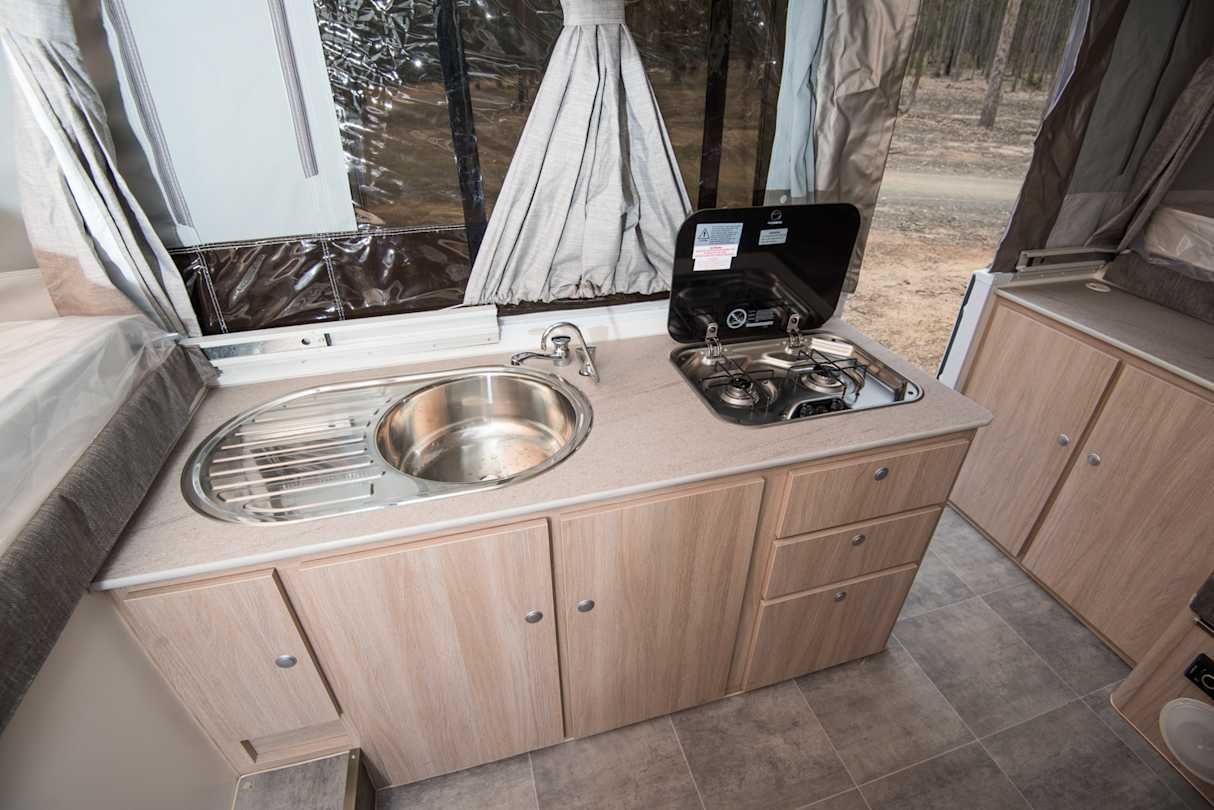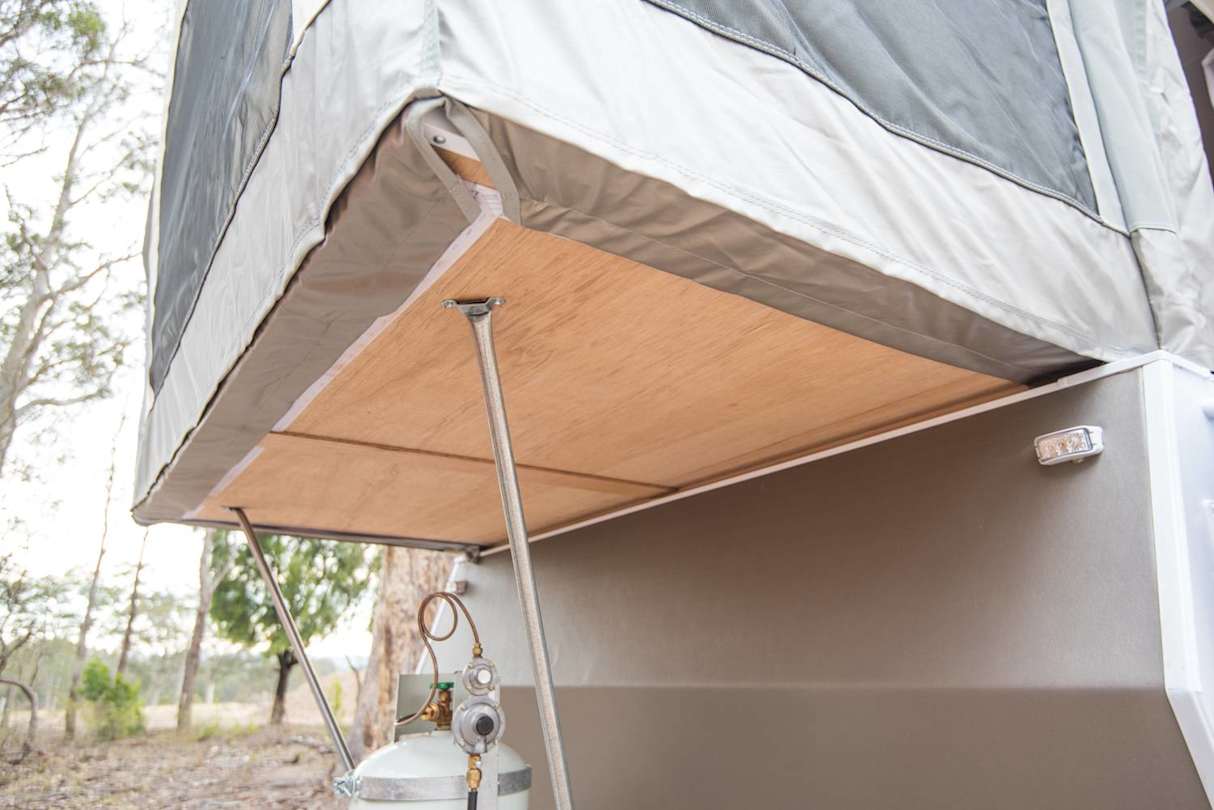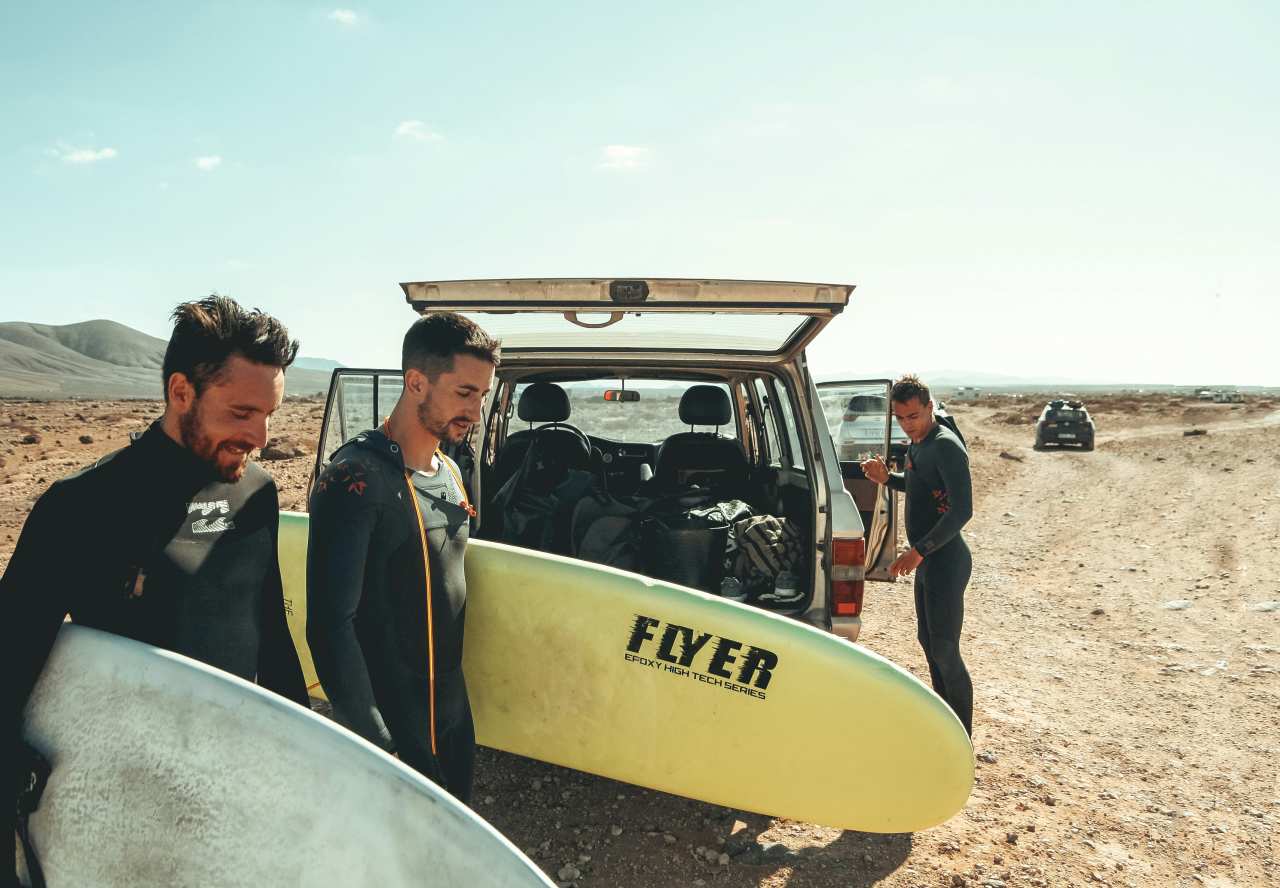Jayco is Australia’s most prolific builder of camper-trailers, caravans and motorhomes. Many of its models are the cheapest options in their class and represent decent value for money.
The company’s cheapest little camper-trailer – the Swift – is the perfect example of that: functional, versatile, packed with features and it costs less than $20,000.
How big is this camper-trailer? How much does it weigh?
| Length | 4140mm |
| Width | 2240mm |
| Height | 1660mm |
| Weight (Tare/ATM/Tow Ball) | 870kg / 1170kg / 65kg |
Our tester is the Swift Touring variant. It measures 2.8 metres in the body when it’s packed up. It is Jayco’s smallest recreational vehicle, but it expands to just under five metres (4980mm) – almost doubling in size – when you set it up at camp.

At 870kg empty and 1170kg with a load, the Swift makes for a good first step into the camping life, and it’s ideal for anyone with a small, young family, as it’ll pretty comfortably sleep two adults and two young children.
How practical is the space inside?
The camper’s interior is quite cosy, but there’s room to move around or to relax in the dinette, and the beds will become de-facto play areas for young children.

The dinette converts into a small bed, but if you’re thinking about using it as a full-time bed for a child, opt for one of Jayco’s larger campers.
What are the beds like?
The two beds are different sizes; one is for adults and the other is for an older child or a pair of younger ones.
Both beds have innerspring mattresses and, by camping standards, are very comfortable. The smaller bed is fitted with safety nets that buckle into place easily – so you don’t have to worry about anyone rolling off or escaping in the night – but those nets aren’t so high that you can’t just reach over them when needed.

Both beds have curtains so you can block out light and add a modicum of privacy, but obviously aren’t sound-proof.
What’s the kitchen like?
The Swift’s kitchen is basic but very functional. Most large camper-trailers can be fitted with kitchen upgrades, but the Swift’s size restricts that potential, so you’re stuck with a two-burner hob, cold water and a 90-litre, three-way, Dometic fridge.
As the Swift Touring (the on-road model) doesn’t have a battery as a standard accessory, there’s no electric water pump, but you can connect to mains pressure water, or pump it by hand at the sink.

The tank under the floor can hold 82 litres of water, which is plenty, considering you can’t shower with it and you have to pump it by hand.
How easy is it to tow?
Because the Swift Touring is so small and light, modern utes and SUVs are able to tow it pretty comfortably. With the Ford Ranger, for instance, as a tow vehicle I can see over the top of this camper-trailer to the traffic behind, and because it is so narrow, vision back along the side is quite generous, too.
The Swift’s weight has little impact on a dual-cab’s performance, and there’s only a slight rise in fuel consumption as the Swift doesn’t have similar aerodynamics to a large caravan.

Also, as its ball weight is so light, the Swift doesn't cause too much rear-end sag in the tow vehicle, even if it’s behind a passenger car.
Another advantage of the Swift’s slightness is that it’s easy to move around at camp, or drag onto the tow-ball if you have to hitch solo or don’t have a reversing camera.
How easy is it to set up?
Setting up is quite simple. There are four latches around the roof which need to be undone, then the roof gets wound up using muscle power.
Once the roof is up, the beds, which are each on slides, can pull out as you flick the tent over the corners and Velcro it all into place.

A couple of support poles give each bed a 350kg rating, and then you just have to fold the door into place and insert the tent supports. So they keep the tent taut, they need a bit of force behind them, making it the only bit that requires any real muscle.
What options are available for it?
As it’s a rather bare package out of the box, it can be upgraded with some choice features. A battery will likely be high on the list, as the charging system is ready and waiting as a standard feature. Jayco can provide one, or you can bring your own. Once a battery is installed, you can then fit the stereo, or a TV and aerial. Other options include a bag awning, a gas bayonet or roof-racks.

If you’re planning on a bit of remote-area travel, the Outback version of the Swift (from $22,990) beefs up the chassis, adds independent coil spring suspension, ups the wheels from 14 to 15in alloys, the tyres from highway terrains to all terrains and gives you more lively decals.
Any potential issues with it?
There are a few things to take note of, however. The bed bases are an unsealed ply board, which although not directly exposed to the elements, would be far longer lasting with a coat of paint on them.
Storage is also limited, not just by the size of the camper, but because so much of it is taken up by living area. Everything in camping is a compromise, though. Also, and this is true of the whole range, while packing and unpacking, the beds are exposed to the elements. Not a drama on a sunny day, but less than ideal during a summer storm.

And, lastly, anyone tall might find using the kitchen a bit tiring, as it’s quite low, given that it has to sit below the bed height so it can slide in while packed up.
Verdict
Overall, the Swift is pretty good value. It’s got a sensible layout, a clever process to set up and offers quite a lot of comfort within a cosy package.
Given the price and the layout, it’s worth considering if you’re also shopping for a forward-fold camper-trailer, which likewise offers an internal living area.
What's your favourite small, cheap camper-trailer? Let us know in the comments section below.
| Jayco Swfit Touring Specifications | |
| Warranty | 24 months, 3-years Roadside Assist |
| Sleeps | Four |
| Water capacity (Fresh/Grey) | 82L / n/a |







.jpg)

